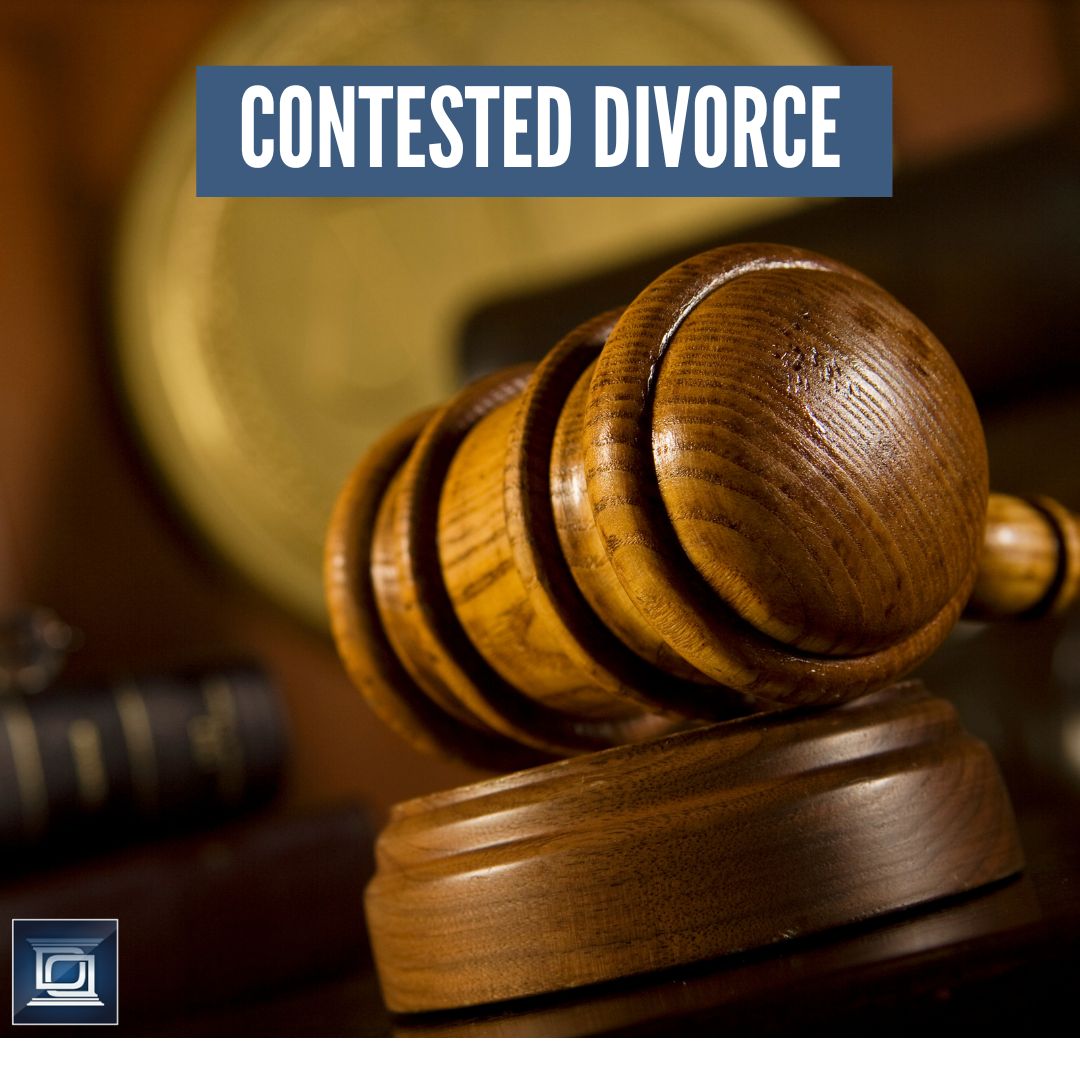When couples decide to end their marriage, they may encounter disputes regarding matters such as child custody, spousal support, division of property, and debt allocation. If these issues cannot be resolved through negotiation or mediation, the divorce becomes contested, and the court is typically involved to make the final decisions. A contested divorce is where divorcing spouses are unable to reach an agreement on one or more significant issues related to their divorce.
When you typically think of “nasty” divorces, you’re referring to contested divorces. This doesn’t mean that all contested divorces are chaotic or malicious though. Contested simply means a judge will need to assist the couple in coming to an agreement.
What a Contested Divorce Looks Like
While every splitting couple is different, there are some things that generally occur during a contested divorce.
Court Proceedings: In a contested divorce, the court becomes actively involved in resolving the issues that the spouses cannot agree upon. Both parties present their arguments and evidence before a judge, who then makes decisions based on the best interests of the involved parties, particularly any children involved.
Legal Representation: Given the complexity of contested divorces, it is crucial for each spouse to have legal representation. Hiring an experienced family law lawyer is highly recommended to navigate the legal process, protect their rights, and present a strong case in court.
Discovery and Disclosure: During a contested divorce, both spouses are required to disclose all relevant financial and personal information. This process, known as discovery, ensures that both parties have a complete understanding of the assets, debts, and income involved. Failing to disclose information fully and honestly can have serious consequences.
Resolution Methods: While a contested divorce typically involves court proceedings, alternative dispute resolution methods like mediation or arbitration may be attempted before going to trial. These processes can provide an opportunity for the spouses to negotiate and reach mutually acceptable solutions with the help of a neutral third party.
Trial and Judgment: If a resolution is not reached through negotiation or alternative methods, the case proceeds to trial. Each party presents their arguments and evidence, and the judge makes decisions on the outstanding issues. The judge’s decision is legally binding and becomes the final judgment of the court.
Contested divorces can be emotionally and financially challenging for both spouses. The involvement of the court often extends the duration and increases the costs of the divorce process. However, in situations where an agreement cannot be reached through other means, contested divorces provide a mechanism for resolving disputes and ensuring a fair outcome.
If you find yourself facing a contested divorce in BC, consult with a knowledgeable family lawyer who can guide you through the legal proceedings, protect your rights, and advocate for your interests in court.
Get in touch with one of our family lawyers by calling our office or filling out the contact form on this page. You can also check out one of our other posts for more information on divorce.






